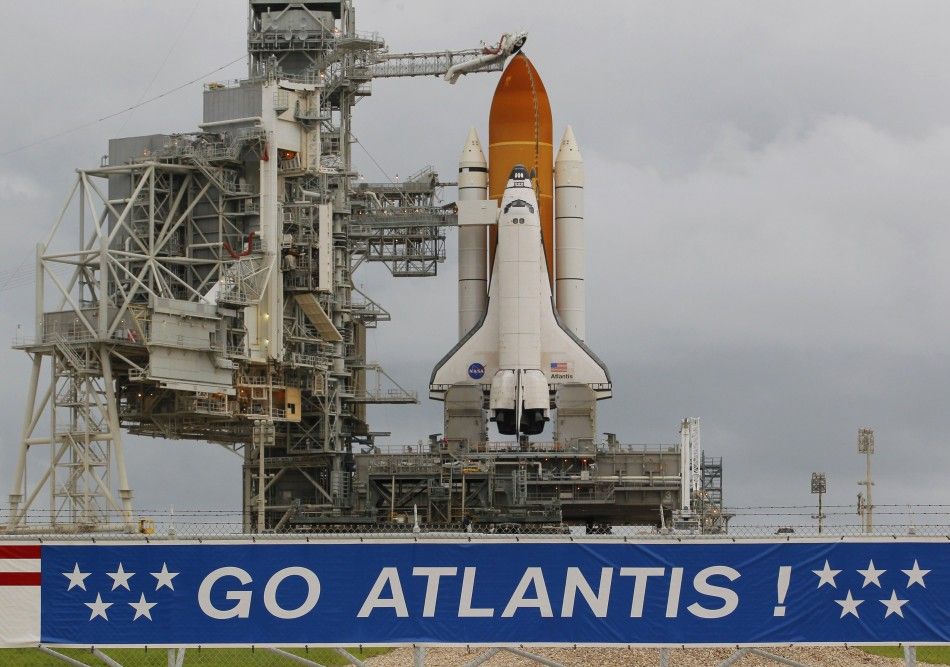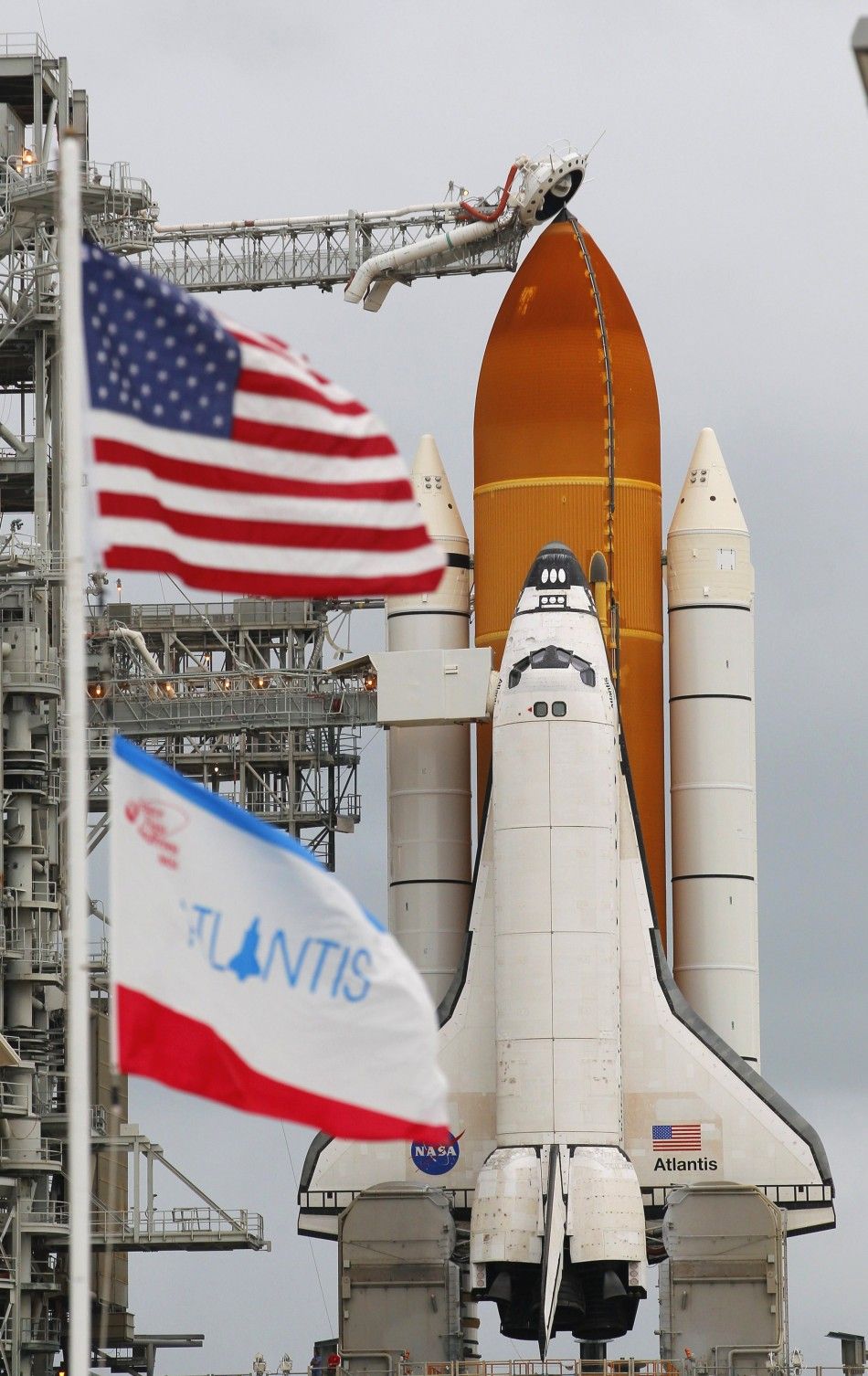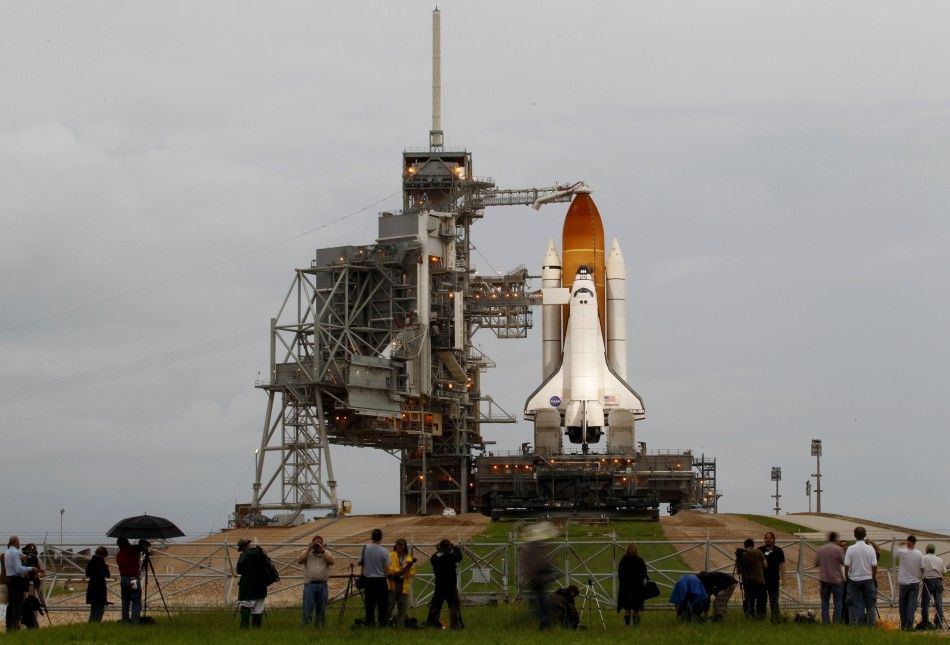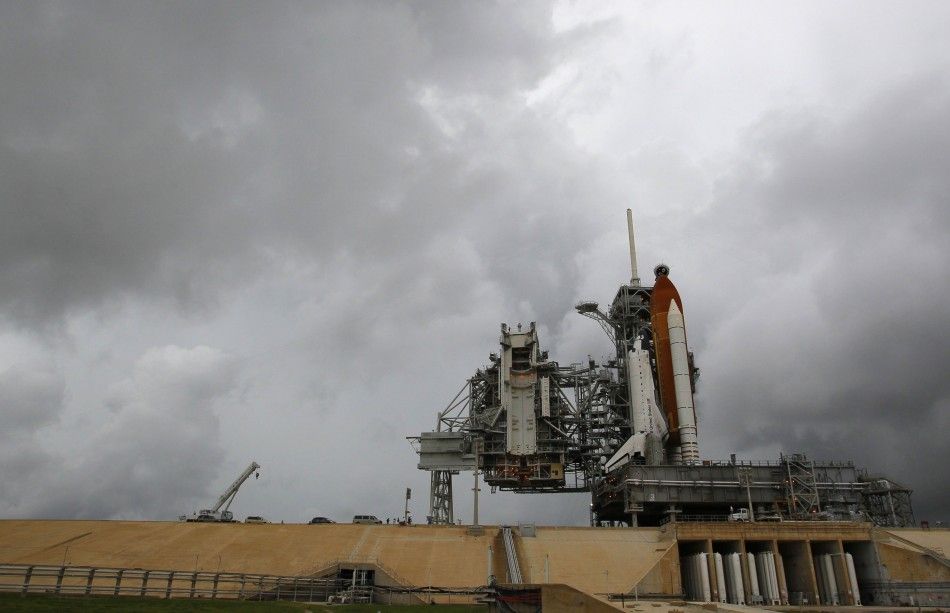Atlantis Ready For Final Voyage Despite Lightnings, Stormy Weather (PHOTOS)
The space shuttle Atlantis is scheduled to blast off to the International Space Station at 11:26 am EDT on July 8, which will be the final flight in the 30-year shuttle program.
NASA fuelled Atlantis and launch preparations continue on schedule despite inclement weather near the launch pad near midday Thursday. Forecasters insist there still is a 70 per cent chance of thunderstorm and rain.
As engineers prepared to move the Rotating Service Structure away from Atlantis, a severe thunderstorm passed overhead, delivering rain and lightning that produced two strikes near the launch pad.
Data review showed the two strikes occurred at 12:31 p.m. and 12:40 p.m. EDT. The first struck the water tower 515 feet (157 meters) from the pad and the second struck the beach area northeast of the pad.
So far, the data review indicates no issues with any systems, including shuttle Atlantis, External Tank, Solid Rocket Boosters, Space Shuttle Main Engines or Ground Support Equipment.
Meanwhile, the Atlantis crew is expected to face heavy workload as only four astronauts are assigned to the last mission of NASA whereas it's usually a six or seven-person crew.
The crew has been reduced from seven to four people as with no other shuttle on standby to perform a rescue mission in case of an accident, security risks are increased.
If they get stranded on the International Space Station they will have no choice but to be ferried home in turns aboard the Russian Soyuz craft, a process that could take several months.
The four-member crew consists of: Commander Christopher Ferguson, Pilot Douglas Hurley and Mission Specialists Sandra Magnus and Rex Walheim.
During the STS-135 mission, Atlantis will deliver the Raffaello multi-purpose logistics module filled with supplies and spare parts to sustain space station operations after the shuttles are retired.
Atlantis will deliver a year's worth of food, clothing, science equipment and supplies to the station, a $100 billion project of 16 nations that circles 220 miles above Earth.
After the space shuttle ends, NASA will work with the Russian Space Agency to send astronauts into space through Russia's Soyuz space shuttles. Following that, NASA plans on helping launch privately-run space shuttle programs.







© Copyright IBTimes 2024. All rights reserved.











